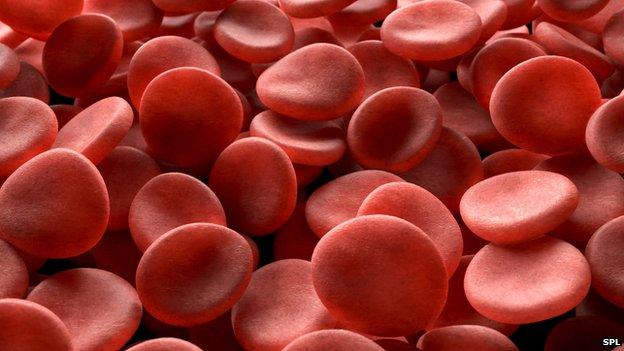NHS to test blood made in a laboratory
- Published

Blood that has been made in a laboratory will be tested by the NHS within two years.
The new blood cells will be made in bulk from stem cells that normally circulate in the blood.
Around 20 people will be given small quantities of the "lab-blood" as part of safety tests.
NHS Blood and Transplant said it would be a "landmark" moment and could help people with diseases such as sickle cell anaemia.
The organisation is facing falling numbers of new blood donors.
Artificial blood is one potential solution, particularly for patients for whom it is hard to find a good blood match.
The trial will be organised by the Universities of Bristol, Cambridge and Oxford and will start by 2017.
Healthy people - not patients - will be given five to 10ml (less than two teaspoons) of the manufactured blood.
This is much smaller than a transfusion of a unit of blood - which is around 470ml.
Dr Nick Watkins, from NHS Blood and Transplant, said: "Scientists across the globe have been investigating for a number of years how to manufacture red blood cells to offer an alternative to donated blood to treat patients.
"We are confident that by 2017 our team will be ready to carry out the first early phase clinical trials in human volunteers.
"These trials will compare manufactured cells with donated blood.
"The intention is not to replace blood donation, but provide specialist treatment for specific patient groups."